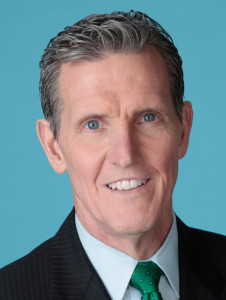 Baylor Health Care System, now Baylor Scott and White Health, has been under the leadership of CEO Joel Allison since 2000. Allison has been with Baylor for over two decades, serving for seven years as executive vice president and chief operating officer before accepting the position of president and CEO at the time of former Baylor president, Boone Powell, Jr.’s retirement in 2000.
Baylor Health Care System, now Baylor Scott and White Health, has been under the leadership of CEO Joel Allison since 2000. Allison has been with Baylor for over two decades, serving for seven years as executive vice president and chief operating officer before accepting the position of president and CEO at the time of former Baylor president, Boone Powell, Jr.’s retirement in 2000.
In an in-depth interview, I asked Allison to talk about some of Baylor’s strategic initiatives that they are currently working on or will be working on in the near future. Allison spoke extensively about Baylor’s emphasis on accountability and their increasing focus on transparency regarding quality outcomes and patient satisfaction. “One of our goals is to create the ideal patient experience,” he said.
Allison went on to explain that in the pursuit of improved primary care access and becoming more centered around patients’ needs, “All of Baylor’s physician practices are now certified by the National Committee for Quality Assurance (NCQA) as Patient-Centered Medical Homes.” Building on the goal of expanding primary care, Baylor is also focusing more on population health management and chronic disease management.
One interesting and unique example of how Baylor is reaching out to the community in an effort to improve population health and wellness is the Diabetes Health and Wellness Institute at the Juanita J. Craft Recreation Center in south Dallas. The institute opened in June of 2010, and has seen incredible success. Allison explained,
“We determined that out of that economically challenged, under-served area, we were seeing way too many people from those zip codes in our emergency department, too late. It was mostly around type 2 diabetes—losing eyesight, losing limbs. So we went in and partnered with the city of Dallas in a new model of private-public partnership, taking over an underutilized recreation center. We completely remodeled and expanded it, putting in a state of the art fitness center and a cooking demonstration kitchen, where our chefs teach how to cook healthy meals. We also have a farmers’ market that comes in every Friday to sell fresh fruits and vegetables at a discounted price; so not only can people learn to cook healthier, but they can also buy quality produce right there on the spot. There are also health education classes and a physician clinic on location to teach prevention and wellness.”
After the opening of the Diabetes Health and Wellness Institute, a 40 % reduction in visits to Baylor Emergency room was noted within just two years—a sign that Baylor’s increased focus on prevention and wellness is working. Allison hopes that the institute will become a model for population health management nationwide, because chronic disease, like type 2 diabetes, is everywhere. “I believe, to bend that cost curve, the future is in population health management, prevention and wellness, and keeping people healthy.”
Another strategy Baylor has implemented regarding health and wellness is an emphasis on personal responsibility. “We have a wonderful program called ‘Thrive,’ which is a wellness program for Baylor employees and their spouses that encourages personal responsibility for their health.” As of 2012, Baylor no longer hires nicotine users. “Because we are in healthcare we need to be a model. If you really want to move from sick care to health care, then that’s the number one preventable cause of death.”
Baylor has continued to step it up in other areas of employee health and wellness as well, including taking sugary drinks and unhealthy snacks out of the vending machines in their hospitals. Additionally, they offer healthy ‘Thrive’ branded foods at a discount, and they no longer serve anything with trans-fat. In one more push toward becoming a model of health and wellness, Baylor requires employees on the health plan to answer an annual health questionnaire and ‘run their numbers’—BMI, blood pressure, cholesterol, sugar, glucose, etc. By filling out the questionnaire individuals can get a reduction in their health insurance premiums.
Allison noted that one of Baylor’s biggest recent initiatives is their creation of the Baylor Quality Alliance, or BQA, which is Baylor’s response to the Affordable Care Act’s model of Accountable Care Organizations (ACOs). The BQA, which is governed by its own board of managers, is a clinically integrated organization of physicians, hospitals, and other providers whose mission is to achieve the highest quality, cost effective care possible. BQA came about as part of Baylor’s “Vision 2015,” which they launched and began working toward back in 2009 as a way to provide direction for the Baylor team in anticipation of healthcare reform. As of January 2012, all Baylor employees and dependents on the Baylor health plan were moved into this new ACO.
Baylor Health is certainly taking big strides toward providing higher quality care at lower cost, and most importantly, is working tirelessly to move the community further toward a focus on preventative care and wellness. As Allison said, “That’s our commitment, to improve the health of a population. That is the future.”
